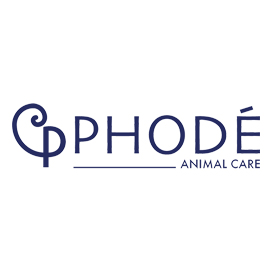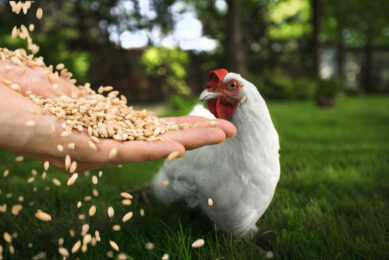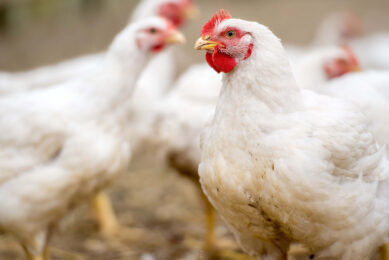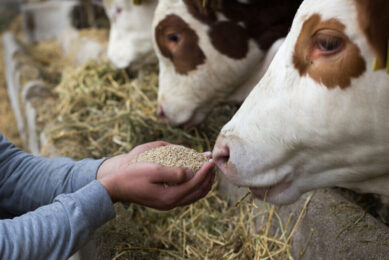Achieving ‘Better-Being’ with a holistic approach
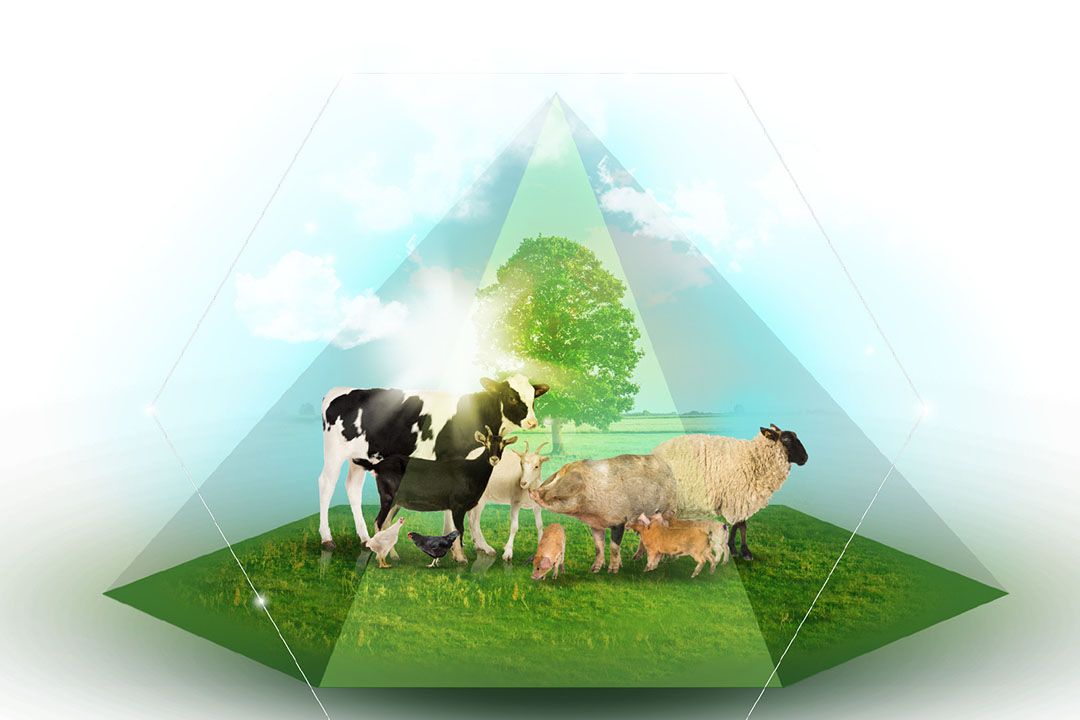
Modern animal farming is now reaching its limits, with production remaining below the genetic potential of the animal.
There are 3 reasons for the genetic potential of animals not being met:
- Animals are seen as a combination of systems, with no consideration for how these physiological units interact with one another.
- It is often disregarded that animals are sensory beings, which is an important element of their physiology, behaviour and well-being. They are living beings capable of integrating and governing themselves.
- Modern farming methods weaken animals, both at a cellular and individual level (stress, productivity, etc.)
A new approach to livestock
The quality and ethics of production depend on livestock management, slaughtering conditions and food packaging and processing, as well as in large part on the animals’ ‘Better-Being’. More and more animal well-being/welfare approaches are emerging today.
These are based either on simple guidelines (building, feeding procedures, etc.) or on more convoluted principles set out by associations whose objectives, if at all legitimate, seem unrealistic and incompatible with the growing demand for animal protein.
Phodé views animal farming from a holistic perspective, which achieves performance objectives through a ‘Better-Being’ approach. This involves seeing an animal as a whole sensory living being which interacts with its environment. In addition to being more ethical, the ‘Better-Being’ approach is the key to better performance. With this approach, animals play an active role in modern farming and have a better quality of life in order to best meet their needs and move closer to their full genetic potential.
Sensory-cerebral expertise for more productive animal farming
Animals are constantly relying on vital adaptation mechanisms in order to keep their internal environment compatible with life: this balance is referred to as homeostasis. The consistent, unchanging environment created by modern farming practices limits animals’ ability to adapt. Because the animals are unaccustomed to diversity or change, the need to adapt to any variation could be costly to them in terms of energy or frustration. And this cost to the animal translates into a loss in productivity.
With its extensive research on the impact of olfactive molecules on the brain, Phodé has demonstrated how olfaction can positively influence animals’ perception of their environment. Their research thus aims at identifying and better understanding the effects of qualified functional sensory molecules and plant extracts on physiology, behaviour, ‘Better-Being’ and finally on the performance of living beings.
Nature is complex, and so are Phodé solutions
Thanks to its expertise, Phodé has developed neuro-sensory and physiological solutions to improve animals ’Better-Being’ and therefore yield higher profits for producers. With a new cerebral approach, the neuro-sensory product range achieves ‘Better-Being’ through the senses, along each stage of the farming cycle.
The VeO range focuses on modulation of stress perception in order to reduce its potentially harmful consequences. The CristalFeed range helps provide animals with a positive olfactory experience to reassure them through changes in feed or raw materials. The Oleobiotec range targets the cerebral ecosystem in promoting the balance and diversity of gut microbiota for animal ‘Better-Being’. By acting on the senses, Phodé solutions provide ‘Better-Being’ to animals.
Discover sensory advanced solutions by Phodé can be seen at Eurotier 2018 in Hall 2, booth F46. Visitors are invited to meet the company’s technical experts and sales teams to discover a new vision of animal care.


